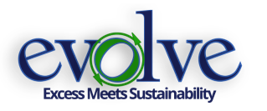Editor's Note: The following is a guest post by Scott Peterson, VP of U.S. tax policy at Avalara. The views are the author's own.
Since the Supreme Court decided the South Dakota v. Wayfair case in June, sales tax is more complex and difficult for businesses to handle than ever. New economic nexus laws for over 20 states will go into effect before Christmas. This will expose thousands of sellers to new and complicated sales tax challenges. Despite the notoriously complex nature of sales tax, it is easy to be lured into a false sense of compliance. There are many nuances present in taxability legislation from state to state, and the more products you sell the more complexity you encounter — especially given there are more than 12,000 tax jurisdictions in the U.S. alone with differing rules about how to tax different products and at what rate.
Many businesses relegate sales tax to the bottom of the to-do list, especially when the busy holiday season begins. However, out-of-mind does not cut it when it comes to sales tax — you do not want your business to lack compliance, as it could lead to loss of customer loyalty, brand value and more. Some common and avoidable sales tax mistakes have potentially devastating consequences. At the height of the holiday season, when there is a higher volume of sales and a need for speedy fulfillment, staying compliant can be challenging.
Here are five sales tax tips to prepare your business for the holiday season:
1. Apply the correct rates or boundaries
Failure to track rate, rule and boundary changes can lead to trouble down the line. There are more than 12,000 sales and use tax jurisdictions in the United States. According to Avalara tax research there were 36,254 tax changes in 2017 alone. On top of that, states routinely amend taxability rules for goods and services. Finding accurate information on these changes can be like finding a needle in a haystack.
2. Manage exemption and resale certificates
Sales tax exemption certificates and resale certificates enable certain consumers to purchase taxable goods and services tax-free. Consumers qualifying for an exemption must provide the seller with a valid resale or exemption certificate to prove they are entitled to it. Without such a certificate, sellers can be held liable for the uncollected tax. Invalid or lapsed certificates put the seller at risk of non-compliance. It is therefore critical for companies to have an efficient certificate-management system in place, such as automation.
3. Get taxability right
Sales tax rates are only part of the equation; states (and some localities) have their own taxability rules for goods and services, and these are subject to change at any time. For example, sweetened beverages are subject to a special tax in Berkeley, Philadelphia, and Vermont; repair, maintenance, and installation services are generally subject to sales tax in North Carolina, but generally exempt in California. Failure to apply the right rules can be costly. As always, the onus to account for these changes is on the business.
4. Don’t overlook changing nexus laws
Ignoring nexus is risky. While most businesspeople have some concept of nexus — the connection between a business and a taxing jurisdiction that triggers a sales tax collection and remittance obligation — many don’t realize that nexus laws are complex and subject to change. Numerous states have broadened their nexus laws in recent years. A few now hold that nexus can be established by economic activity alone (e.g., having 200 separate taxable sales transactions or more than $100,000 in taxable sales in a state). Review where you currently have nexus and identify applicable rule changes. Make sure your business is registered where it needs to be. Determine whether your business might have unwittingly created nexus.
5. Don’t ignore consumer use tax
Consumer use tax is one of the most common causes of miscalculated and unpaid tax. The silent sibling to sales tax, consumer use tax applies to the consumption, use, or storage of tangible personal property (TPP) when sales tax was not collected at checkout, as often happens with catalog or internet sales. It may also be due on items purchased while traveling in another state or country. In addition, businesses owe use tax when they pull items purchased for resale and use them in-house.
Taxpayers are supposed to remit consumer use tax directly to the tax authorities, but less than 2% do. Consequently, states are working to increase consumer use-tax compliance. Some are now asking non-collecting remote vendors to identify their customers so tax departments can ensure these sellers are remitting the use tax they owe.
Prepare your business for the year ahead
Sales tax compliance is tricky, especially for growing companies doing business in multiple jurisdictions, and for any company at holiday time. Handling it manually is complicated, time-consuming, and risky, which means it can inhibit rather than encourage growth.
Preparing for an influx in sales by getting educated can give companies the agility, flexibility, and efficiency needed to thrive, especially during the busyness of the holiday season and all year round.



















